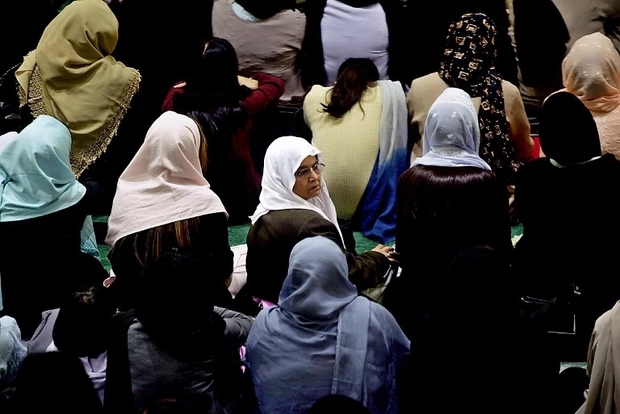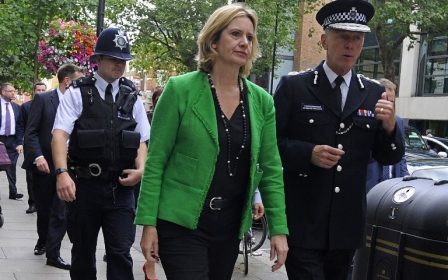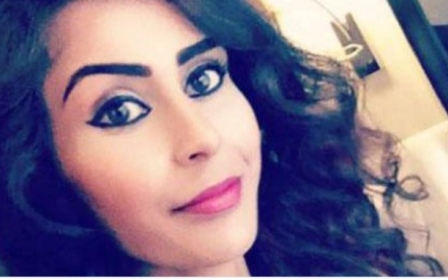Muslim women are UK's most disadvantaged group, say MPs

Muslim women are the most economically disadvantaged group in the UK, according to a report published on Thursday by a parliamentary committee.
The report said Muslim women face discrimination on three levels: ethnicity, how they dress, and social inequality - all of which affect them in the workplace and when they are seeking work.
Members of the House of Commons Women and Equalities Committee visited various Muslim communities in producing the report, entitled Employment Opportunities for Muslims in the UK.
It highlights how Muslims are by far the most economically disadvantaged religious and ethnic minority in Britain.
The report cited Office for National Statistics figures for 2015, which found 35 percent of all Muslim women aged 16 to 64 were in employment. By contrast, 69 percent of all working age women were in employment.
More than half of Muslim women were "economically inactive" - unemployed and not seeking work - compared to a quarter all working-age women in the UK.
The report cited a number of factors contributing to the situation: Academics told the committed that there was a "conventional cultural acknowledgement" that "women are homemakers and men are breadwinners".
It said there was evidence to suggest the biggest cause of the "acute" disadvantage felt by Muslim women was their religion, and that Islamophobia against Muslim women "should not be underestimated".
In job applications, Muslim women could face discrimination based on their name, religion or dress, according to the MPs.
The report also stated that English language skills "continue to be a barrier for some," and poverty disproportionately affected Muslims.
Maria Miller MP, who chairs the committee, said many Muslims who they met were mistrustful and reluctant to speak to the MPs because they feared their inquiry was linked to the government's Prevent programme, an anti-radicalisation initiative.
“The challenges that the government faces in tackling extremism cannot be underestimated," Miller said. But she added: “The Prevent strategy was cited as a significant source of tension by a number of participants.”
Hareem Ghani, women's officer at the National Union of Students, told Middle East Eye that the government had spent more time spying on Muslim communities than helping them.
She said "the data has shown that Muslim women are disproportionately discriminated against in society, from how they are dressed to the colour of their skin".
Ghani said British Muslims need the government to help them "climb out of structural inequality and poverty as opposed to only interacting with them via the prism of Prevent".
Earlier this month Middle East Eye revealed that the UK government was planning a mandatory deradicalisation scheme, despite warnings from parliament's committee on human rights that its counter-extremism strategy was based on unproven theories and risked “making the situation worse”.
The report recommendations range from the introduction of a name-blind application process for jobs, to a campaign to raise awareness of the issues.
It also said the government must rebuild trust with British Muslims with integration initiatives that focus on improved life chances rather than counter-extremism.
Earlier this year, the European Union's human rights watchdog urged the UK to engage more with the country’s Muslims, warning that elements of the Prevent strategy could actually contribute to the spread of extremism.
Nils Muiznieks, the EU Commissioner for human rights, shared concerns that Prevent “runs the risk of isolating the very communities whose cooperation is most needed to fight violent extremism”.
Prevent was expanded while Britain's Prime Minister Theresa May, was still home secretary. Under her tenure, it became a legal obligation for all public-sector bodies and employees to report those who show "signs of radicalisation". Such signs can include questioning foreign policy and Western media reporting, as well as feeling reserved and anxious.
New MEE newsletter: Jerusalem Dispatch
Sign up to get the latest insights and analysis on Israel-Palestine, alongside Turkey Unpacked and other MEE newsletters
Middle East Eye delivers independent and unrivalled coverage and analysis of the Middle East, North Africa and beyond. To learn more about republishing this content and the associated fees, please fill out this form. More about MEE can be found here.




